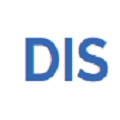Constrained Horn Clauses (CHCs) are widely used in automated program verification. Thus, techniques for (dis-)proving satisfiability of CHCs are a very active field of research. On the other hand, acceleration techniques for computing formulas that characterize the N-fold closure of loops have successfully been used for static program analysis. We show how to use acceleration to avoid repeated derivations with recursive CHCs in resolution proofs, which reduces the length of the proofs drastically. This idea gives rise to a novel calculus for (dis)proving satisfiability of CHCs, called Acceleration Driven Clause Learning (ADCL). We implemented this new calculus in our tool LoAT and evaluate it empirically in comparison to other state-of-the-art tools.
翻译:受限制的合角条款(CHCs)被广泛用于自动化程序核查,因此,证明CHC的可比较性的技术是一个非常活跃的研究领域。另一方面,作为N倍圈闭合特征的计算公式加速技术被成功地用于静态程序分析。我们展示了如何利用加速来避免在解析证据中重复使用重复的CHCs得出结果,这极大地缩短了证据的长度。这种想法产生了一种新颖的计算法,用于(不同)证明CHCs的可比较性,称为加速驱动条款学习(ADCL ) 。我们在工具LoAT中应用了这种新的计算法,并与其他最先进的工具相比,对它进行了实验性评估。</s>



